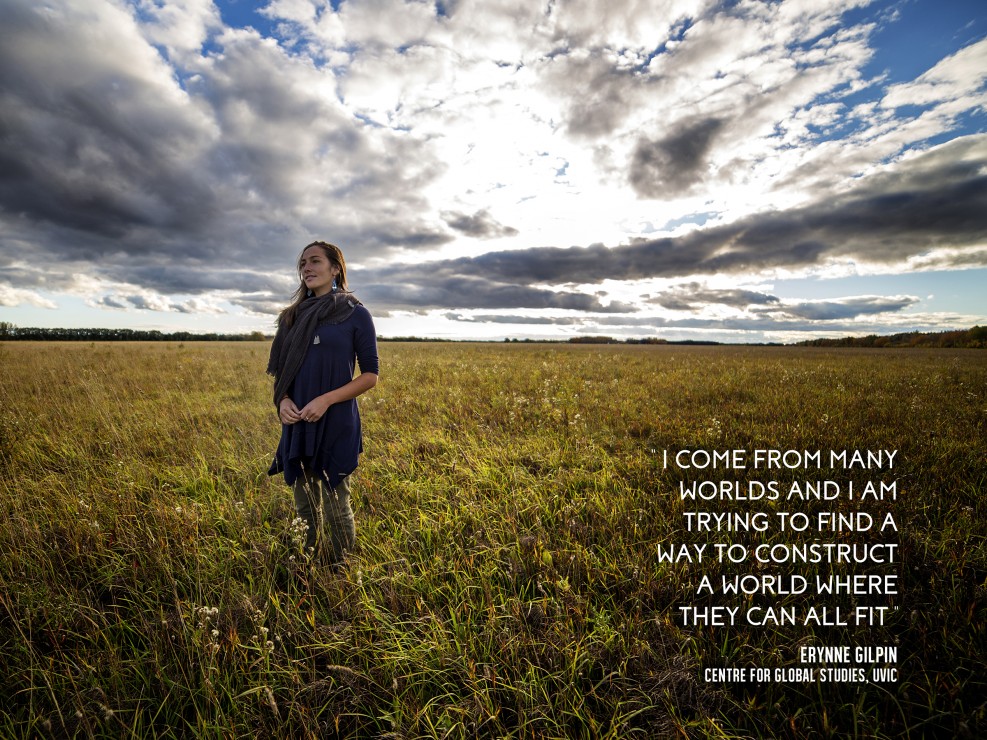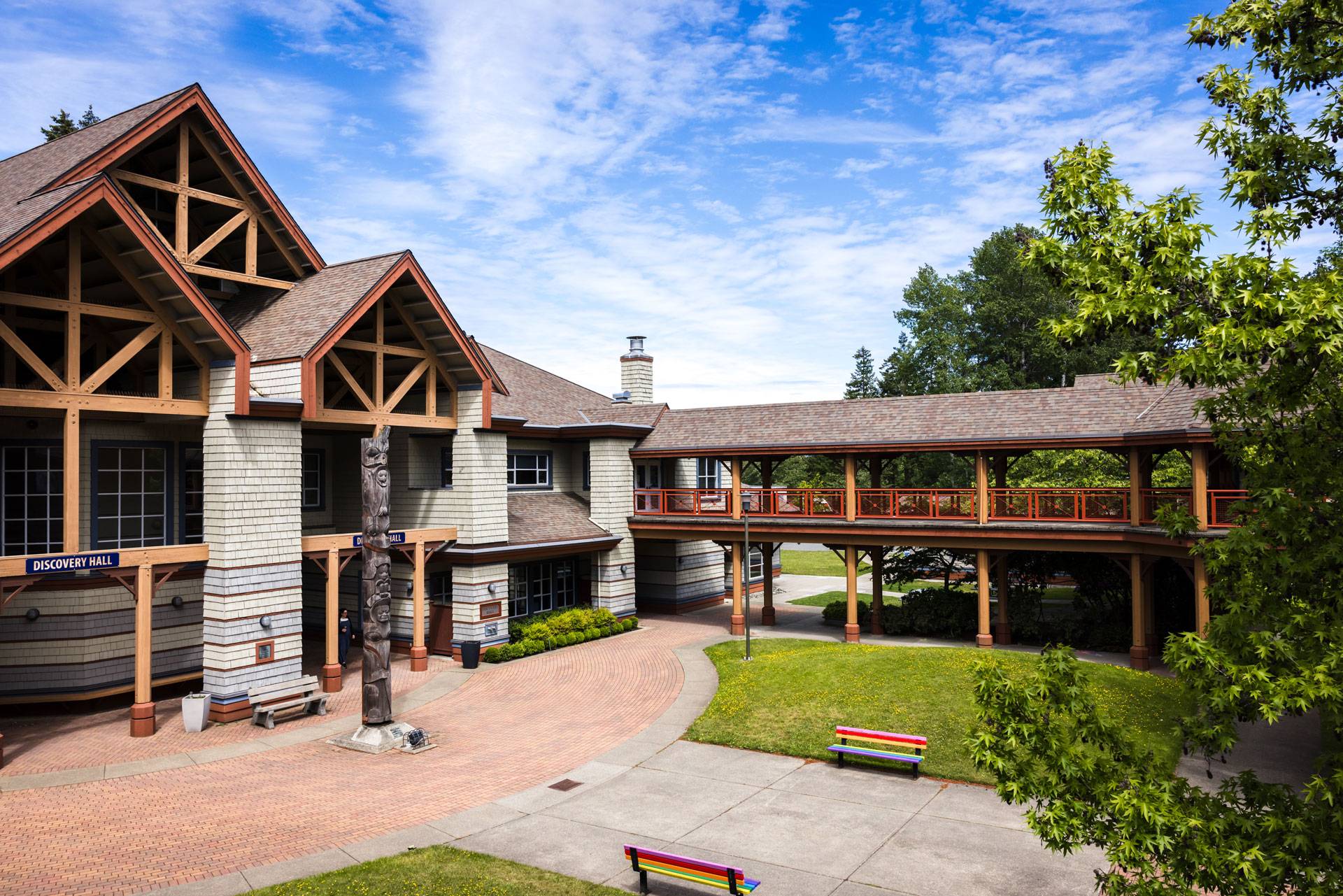
Erynne Gilpin is one of four panelists speaking at “On being here to stay, together,” part of IdeaFest 2017. Photo credit: K. Peruzzo/www.przvida.com
How do we reconcile the past to create a better future? What does reconciliation mean at a local or national level? What does it mean in relation to Canada’s 150th? What does reconciliation even mean at all?
Panelists at IdeaFest event “On being here to stay, together,” taking place tonight, will grapple with these questions, and many more, while suggesting ways in which Indigenous and non-Indigenous communities can create more positive relationships.
Presenters include Michael Asch (Department of Anthropology), Neilesh Bose (Department of History), Erynne Gilpin (Centre for Global Studies and PhD candidate in Indigenous Governance), and Anita Girvan (Centre for Global Studies/School of Environmental Studies).
“People should come to the panel because the word ‘reconciliation’ . . . is in everyone’s mind, on everyone’s tongue. You hear it within media, you hear it all the time,” says Erynne Gilpin, a fellow at the Centre for Global Studies.
“And it’s difficult for us to get into talking about relationship building or salvaging relationships without really trying to critically assess ‘what does this word mean and how is it relevant for our communities?’”
“If we’re talking about reconciliation,” she adds, “let’s really dig down into ‘what does that mean?’ What does that mean, not only between the state and Nations, but what does that mean between me and my neighbor?”
In order to move forward, we must also look back, say both Gilpin and Michael Asch, who will be joining the panel to bring an anthropologist’s perspective to the discussion. For the last 40 years, the basic goal of his work has been how to create a just relationship between settlers and Indigenous people.
“We need to begin by understanding that we did not acquire sovereignty and jurisdiction on these lands,” Asch says, “and that until we can acknowledge that and move forward in that context, we’re going to be blocked from doing anything really serious.”
After working with the Dene Nation for a number of years, Asch decided to be what he calls a “different type of anthropologist” by looking at our own, contemporary society, as much as he looks at societies of the past.
In his most recent book, On Being Here to Stay, Asch discusses people at the time of Confederation who had a much more progressive view of what relationships with Indigenous people should be than the way in which we imagine it now.
“We have fallen into a trap of assuming that no matter how bad we are now, we certainly are better than the people who came before us,” he says.
“It’s a kind of forgiving of ourselves for at least doing better, and it also means that we cut ourselves off from history.”
When we claim naivety in Indigenous-settler relationships rather than citing past situations of cooperative relationships, Asch says, we are able to escape blame by saying, “oh no, it’s something new, we don’t know what to do about it.”
And when discussing reconciliation as Canadians celebrate Canada’s 150th, a central topic of the panel, it is important to pursue relationships that are not predicated upon colonial or neo-colonial attitudes.
“Canada’s 150 is something that isn’t relevant for Indigenous communities,” says Gilpin, much in the same way that reconciliation is not necessarily favorable or relevant to many Indigenous realities today.
“So if we are going to be engaging with Canadian notions of reconciliation or relationship-building, then we have to first and foremost be able to interrogate what that means,” says Gilpin,” and then really nourish and foster an Indigenous response to that, grounded within our own subjective cultural teachings and values.”
“I would appreciate it if folks were just able to take a moment and understand the complexities of relationships and the amount of work and responsibility that goes into building good relationships,” says Gilpin.
“It’s not something that we can just take for granted or something we can sign on a paper or even buy or purchase, but rather is something that requires time, commitment, effort, accountability and renewal.”
Ultimately, says Asch, we have to make major changes within ourselves.
“It’s clear that what Indigenous people are asking for is very reasonable and it may be very hard to put into places of practical matter, but I’m sure it wouldn’t be impossible. Why are we resisting it so much? What is it in our own history and thinking and interests that keep us from making this move that seems, to me, to be so reasonable?”
“We’ve got a really big problem that /we/ have to work on,” he adds, “and stop saying that they have a problem that we can help them with.”
“On being here to stay, together” takes place today at 5:30–7:30 p.m. in the Bob Wright Centre (BWC), room B150. For more on other IdeaFest events running this week, visit uvic.ca/ideafest.






